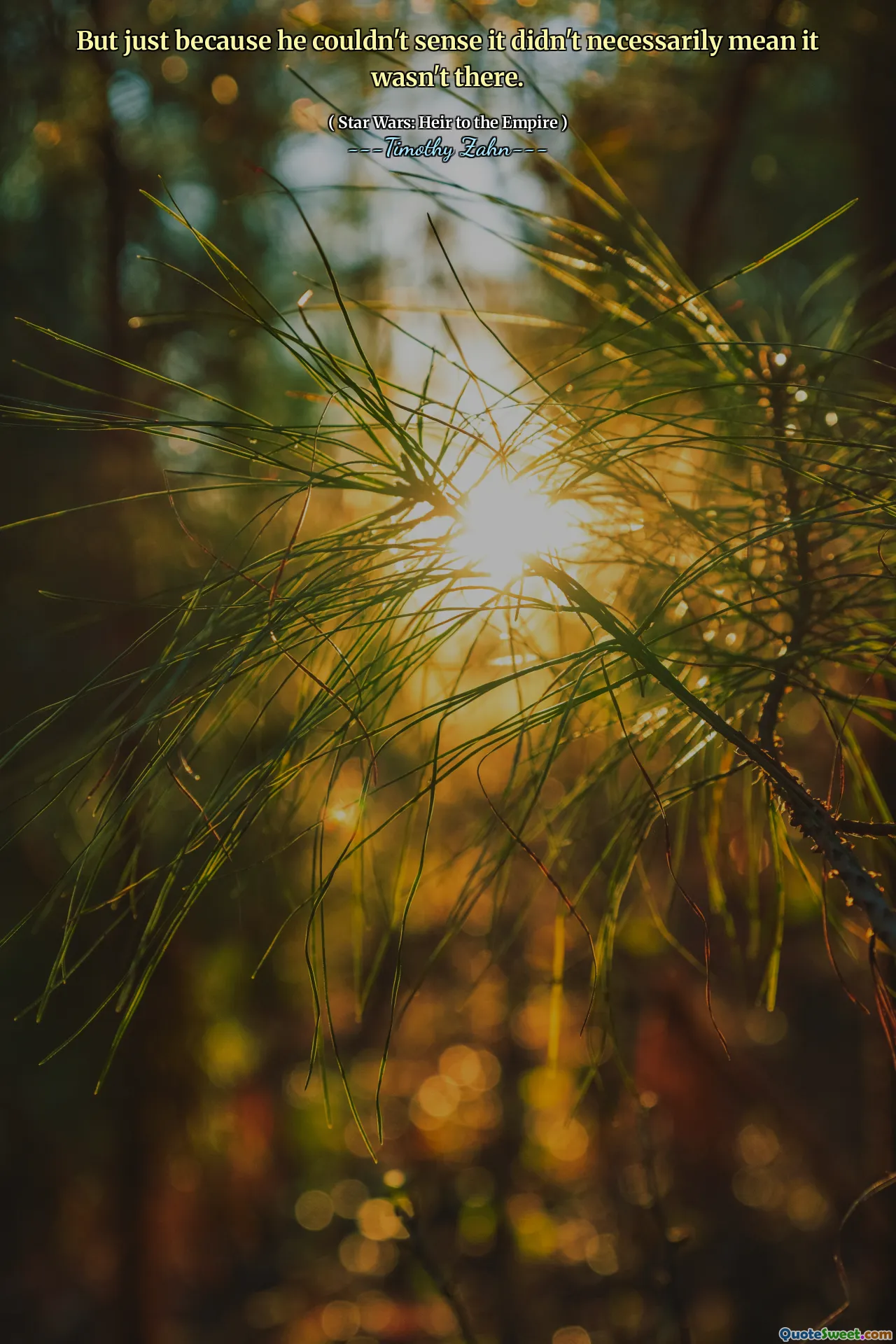
But just because he couldn't sense it didn't necessarily mean it wasn't there.
This quote touches on the nuanced difference between perception and reality. It reminds us that our senses and awareness are imperfect and limited. Often, people fail to recognize the presence or significance of something simply because they do not perceive it at the moment—whether due to distraction, bias, or lack of information. This serves as a powerful reminder that skepticism toward one's immediate perceptions is healthy, yet it should not lead to the assumption that what isn't perceived isn't real or impactful.
In life, situations and influences often operate beyond our immediate awareness. For instance, in relationships, unspoken emotions or intentions may exist even if they're not overtly expressed or sensed; in social or political contexts, underlying currents may influence events despite being unnoticed by the majority. This quote encourages vigilance and open-mindedness, urging us to consider the unseen and the unheard. It calls for humility in acknowledging our limitations and remaining curious about the hidden aspects of our environment.
Furthermore, in a metaphorical sense, this quote can relate to the concepts of intuition and subconscious awareness. Sometimes, we 'sense' possibilities or dangers before they are consciously acknowledged. Ignoring these feelings can lead to missed opportunities or unforeseen problems. Conversely, awareness of our incapacity to perceive everything can inspire us to seek deeper understanding and pay attention to subtle cues.
Overall, the quote prompts reflection on the importance of humility, open-mindedness, and curiosity—recognizing that unseen forces and unseen truths may still be at play, shaping our reality in ways our perception alone cannot fully grasp.






